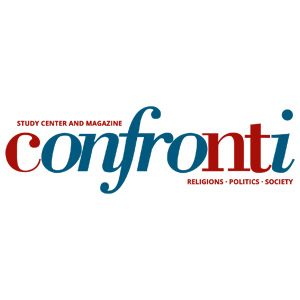Egypt
RELIGIOUS MINORITIES IN EGYPT
There are no official statistics on the number of members of majority and minority religions, as the government stopped issuing statistics after it became non-mandatory to state one’s religion in population censuses. However, some reports, most notably those of the American Commission on International Religious Freedom, indicate that nearly 90% of the total population (about 105 million) is comprised of Sunni Muslims, while 10% of the population is Christian. Other minorities, such as Bahais, Jews, and Shias also exist in smaller numbers.
Article 2 of the Egyptian Constitution states that Islam is the official state religion and that Shari’a is the primary source of legislation, which contradicts other articles of the constitution. The same constitution also discriminates against the rights and freedoms of religious minorities as it imposes upon them the acceptance of Islam as the dominant religion, which constitutes a direct threat to the right to equality and non-discrimination. In addition, the constitution only recognizes the three Abrahamic religions and does not provide unrecognized religious groups with full rights, as article 64 states that “the freedom of belief is absolute, and the freedom to practice religious rites and establish houses of worship for followers of monotheistic religions is a right regulated by law”. This text places two restrictions on the right to practice religious rites: it limits this right to followers of Abrahamic religions, and deals with the practice of religious rites and the building of houses of worship as one, subjecting them both to legal provisions. As such, it would be illegal for a group of citizens to gather for a religious occasion or pray outside designated places of worship. Article 7 of the constitution also states that the Muslim majority itself should adhere to one exclusive vision of Islam as interpreted by Al-Azhar, meaning that the rights of non-Sunni Muslim and of Sunni Muslims who follow a different interpretation of Islam are usually infringed upon. This article is mainly used to justify grave abuses against Egyptian citizens who do not belong to the dominant Sunni denomination.
The non-recognition of a religious group results in the absence of legal personality: therefore, authorities do not allow the establishment of places of worship for its believers nor do they recognize its religious leadership. This leads to the group’s inability to perform its religious rites and to perform marriages according to its beliefs, as it is impossible to obtain marriage licenses or documentation in the name of the group. Likewise, its followers do not have the right to obtain official papers in which their true religion or belief is recorded and cannot manifest their religion freely and without fear of being persecuted.
Ishaq Ibrahim and Ana Maria Daou
RESOURCES

A short introduction to RMs in Egypt is available at Minorities and Indigenous People in Egypt, Minority Rights Group International
See also
Costet-Tardieu F. (2016). Les minorités chrétiennes dans la construction de l'Egypte moderne: 1922-1952, Paris, Karthala
Faour M. (2012). Religious Education and Pluralism in Egypt and Tunisia, Malcolm H. Kerr Carnegie Middle East Center
Ibrahim I. (2017). Copts of Egypt. Minorities and indigenous peoples in Egypt, Minority Rights Group International
Ibrahim I. (2021). الأقليات الدينية غير المعترف بها في مصر: الفيل الذي لا يراه المسؤولون [Egypt’s Officials Don’t See Unrecognized Religious Minorities], The Tahrir Institute for Middle East Policy
Isaac J. (2012). Separate but Equal: Segregated Religious Education in Egypt’s Public Schools, International Journal of Progressive Education, 8, 1, 6-21
Lukasik C. (2022). Minority (Trans)Nationalism between Egypt and the United States, Religion and Nationalism in Global Perspective
Mohieddin M. (2013). No change in sight: The situation of religious minorities in post-Mubarak Egypt, Minority Rights Group International
TIMEP (2022). Egypt’s Religious Minorities: The Legal Framework, The Tahrir Institute for Middle East Policy


 MENU
MENU CLOSE
CLOSE









